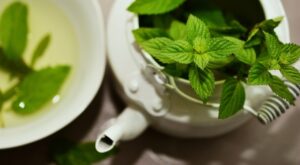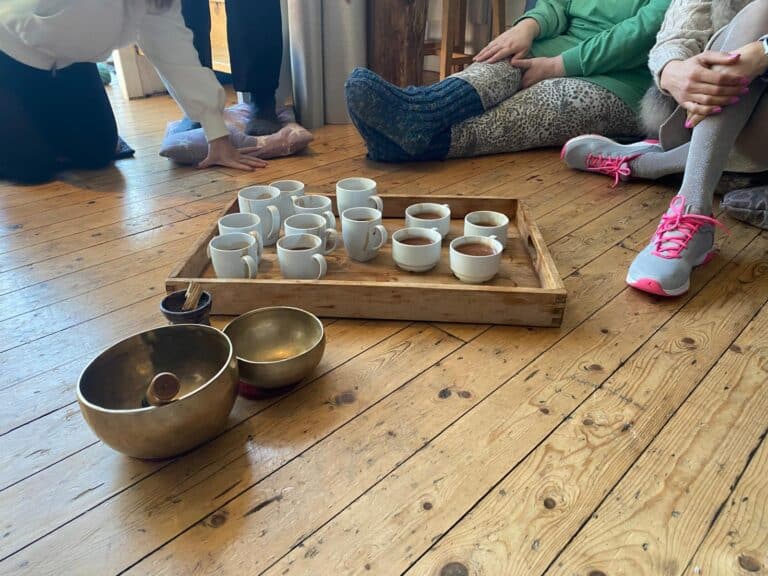Do you sometimes have stomach pain after eating? Is it accompanied by excessive gas and bloating or burning? There is actually a scientific term for this common condition. I'm talking about dyspepsia. What is dyspepsia? Dyspepsia defined as unpleasant symptoms related to the malfunctioning of the digestive system.
Around 30 percent of the population suffers from dyspepsia, digestive problems. If you suffer from it yourself, you want to know how you can prevent unwanted symptoms.
Good news – there are some very effective natural remedies to reduce stomach pain after eating or while eating.

Possible Causes of Stomach Pain After Eating
- Bad eating habits and lifestyle choices
- Drinking too much (alcohol, soda, coffee)
- Infection such as H. pylori (stomach bacteria)
- Eating too fast
- Eating too much at once
- Drinking too much alcohol
- Spicy food
- Fatty or greasy food
- Voltage
- To smoke
- Consuming fiber-rich foods
Other possible causes of stomach pain after eating are medical conditions.
- To swear
- Chronic acid reflux (a condition in which acid-containing contents in your stomach constantly leak back into your esophagus)
- Hiatal Hernia
- Gallstones
- Pregnancy (especially late term)
- Pancreatitis (pancreas makes enzymes to digest food). A blockage of the pancreatic duct due to gallstones can be a typical cause abdominal pain.
- Gastritis (chronic gastric mucosal inflammation)
- Stomach infections like Helicobacter pylori
- Food poisoning
- IBS (Irritable Bowel Syndrome)
- Gastroparesis is a stomach disorder in which food is digested with a delay, often in diabetics)
- Food allergies or sensitivities
- Thyroid disease, especially in hypothyroidism. The thyroid is the conductor of your digestive system. It has a direct influence on the production of stomach acid and various enzymes.
- Depression. Stomach problems are not only part of the physical symptoms of depression, but can also indicate problems of anxiety, for example. In some cases, this can lead to stomach and intestinal complaints.
- Indigestion or stomach pain after eating can also often be caused by medications such as NSAIDs, antibiotics, steroids, and birth control pills.
- Other drug triggers include thyroid, cholesterol, blood pressure and painkillers.

Stomach pain after eating. Gastritis.
Inflammation of the stomach (gastritis) – a gnawing or burning sensation that may get better or worse with eating.
The inflammation and symptoms caused by gastritis are often the result of a bacterial infection that also causes most stomach ulcers over time.
Using alcohol or certain pain relievers — such as aspirin or non-steroidal anti-inflammatory drugs (NSAIDs) — can cause more pain. Symptoms of stomach inflammation such as recurring stomach upset, bloating, pain, hiccups and vomiting blood should not be ignored as gastritis can lead to an increased risk of stomach cancer.
Some drugs can cause stomach pain, including antibiotics, iron supplements, some cholesterol drugs, and chemotherapy
Herbal use for stomach pain after eating

- Licorice root can reduce pain and improve gastric mucus secretion and anti-ulcer activity (activity against the bacteria that cause ulcers, Helicobacter pylori).
- Black cumin can be used to treat nausea, flatulence, diarrhea, and dysentery (a serious digestive infection of the gut).
- Basil leaf can reduce stomach acid
- Ginger has anti-cancer, antibacterial, antispasmodic and anti-inflammatory properties.
- Mastic gum can be effective against digestive disorders.
- Peppermint – mint leaves or a pinch of oil or extract
- Tea, such as chamomile, peppermint, or ginger.
- Apple cider vinegar to soothe an upset stomach, with or without honey. Only if you don't have an ulcer.
- What helps against heartburn
- What is leaky gut?
- Peptic ulcer symptoms and treatment
- Treating Fungal Infection (Candida)
- Pain in stomach after eating
- Stomach pain after eating
- Stomach pain after eating





2 thoughts on “Maag pijn na eten”
Pingback: Which helps against heartburn. Natural remedy for stomach acid
Pingback: Natural treatment yeast infection woman. fungal infection mouth